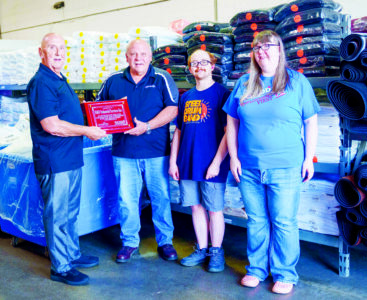Salem committee reviews wetland study on industrial park
SALEM — The economic development committee discussed the results of a geotechnical study of the Salem Industrial Park in its meeting Tuesday.
Jennifer Chandler, a Senior Project Manager for the engineering firm which completed the study Tetra Tech, said that of the 52-acre parcel which comprises the property approximately 11 acres were found to qualify as wetlands. She said that the results showed that the property was “very developable” with soil that will support industrial development and sufficient bedrock to support buildings, and that the city could “build on most of the property.”
She also noted that the city had several options for delineating or recreating those wetlands should it decided to develop to property to attract new business, and that there was nearby city property that was not currently being used where that work could be done.
Chandler said that if the decision was made to make the property “shovel-ready” for manufacturers through federal fundings, which she said was recommended, that the city would need to consult with the United States Army Corps of Engineers, and with a civil engineer to develop a site plan and costs estimate. She explained that the report from the survey, site plan, and estimate would be submitted to the Army Corps of Engineers, which would then decide what specific types of wetland habitats were present on the property and dictate the specific requirements for wetland mitigation. She also noted that if the city sold the property to a company undeveloped that they would likely fulfill their mitigation requirements through the purchase of Wetland Mitigation Banking Program credits.
Sustainable Opportunity Development Center Executive Director Julie Needs asked if some of the existing wetland area on the property’s northern boundary could be used for a retention pond and reduce the amount of mitigation work required, which Chandler confirmed, noting that a civil engineer would consider options like that to use the property most efficiently while developing a site plan.
Councilman and Committee Chairman Jake Gano asked how a property is determined to be a wetland and Chandler explained that it was based on the types of soil present, and that different types of wetlands were distinguished by the species which reside in them. Councilman Jim Harrington asked if it was common for municipalities to take on the development costs for similar properties, and if it typically improved the likelihood of a business moving into the property, and Chandler said that many municipalities in the southern portion of the state had been doing so recently as there is less demand from developers for properties.

